“Corruption happens when people make bad decisions and are willing to disregard the law,” state Rep. Ann Williams said at a recent House Ethics & Elections Committee hearing. Williams said she was trying to understand what would “make a difference,” adding, “I just, again, have trouble finding a nexus between some of these issues . . . and the problems that we’re really facing in terms of restoring our faith in government.”
Yes, corruption and fraud happen when people make bad decisions. Yet it’s evident from the many public officials indicted in recent years that stronger ethics regulations are needed to discourage people with bad intentions.
During recent hearings in both the Illinois House and Senate, several lawmakers have left the impression they don’t want stronger ethics laws. The Senate’s Ethics Committee recently approved Senate Amendment 1 to SB4. It provides only for a six-month waiting period before former lawmakers can lobby, weakens a Chicago lobbying law and does nothing to empower the Legislative Inspector General. That approach isn’t going to stop people from making bad choices. It only will foster further distrust in government.
Several House ethics committee lawmakers seem to agree with their Senate colleagues that stricter laws aren’t the solution, but Illinois’ ethics laws lag behind many others.
A six-month period before former officials can lobby would leave Illinois among states with the weakest such provisions. More than a dozen states have a two-year period and 36 have a one-year cooling-off period before lawmakers can lobby their former colleagues, notes Alisa Kaplan, executive director of Reform for Illinois. Illinoisans ought to be able to trust that their elected officials are working in their best interest, not in that of another client.
Former state Rep. Luis Arroyo was charged in 2019 with crimes related to bribing former state Sen. Terry Link to support legislation that would have benefited Arroyo’s lobbying client. That alone underscores the need for a ban on lawmakers working as lobbyists.
Illinois needs to fully empower its Legislative Inspector General so the office can launch probes and issue subpoenas without first seeking permission from lawmakers. Yes, you read that right. The legislature’s caged watchdog first must get permission from a panel of lawmakers before investigating them or staff. As current Legislative Inspector General Carol Pope noted at a recent House ethics hearing, her office has to contact lawmakers’ staff members when she wants to ask to investigate someone. That has the practical effect of spreading the word to more people that someone is accused of wrongdoing, thereby increasing the chances of a leak.
Pope also noted one of the people she has asked to investigate sat on the panel that currently must give her permission to do her job.
If that doesn’t point to the need for change, I don’t know what does. The Legislative Inspector General needs to be independent and fully empowered.
The annual economic interest statements lawmakers must file also need vast improvement. Many local and state governments and the federal government require disclosure of sources of income in much greater detail than Illinois. Doing so allows the media and public to gauge whether elected officials have conflicts of interest.
Ending the revolving door of lawmakers becoming lobbyists, empowering the legislative branch’s watchdog and beefing up financial disclosures represent the bare minimum Illinois lawmakers ought to approve to begin to restore trust.
House Speaker Chris Welch has said boosting ethics was one of his top priorities. Gov. J.B. Pritzker called for ethical improvements more than a year ago, saying that protecting a corrupt culture or “tolerating it is no longer acceptable.”
The Legislature’s spring session is winding to a rapid close and, to date, we’ve seen nothing but lawmakers trying to protect the status quo. Minor tinkering simply isn’t an ethical option.
Madeleine Doubek is the executive director of Change Illinois, a nonpartisan nonprofit that advocates for ethical and efficient government.
This article originally appeared on Crain’s Chicago Business.
